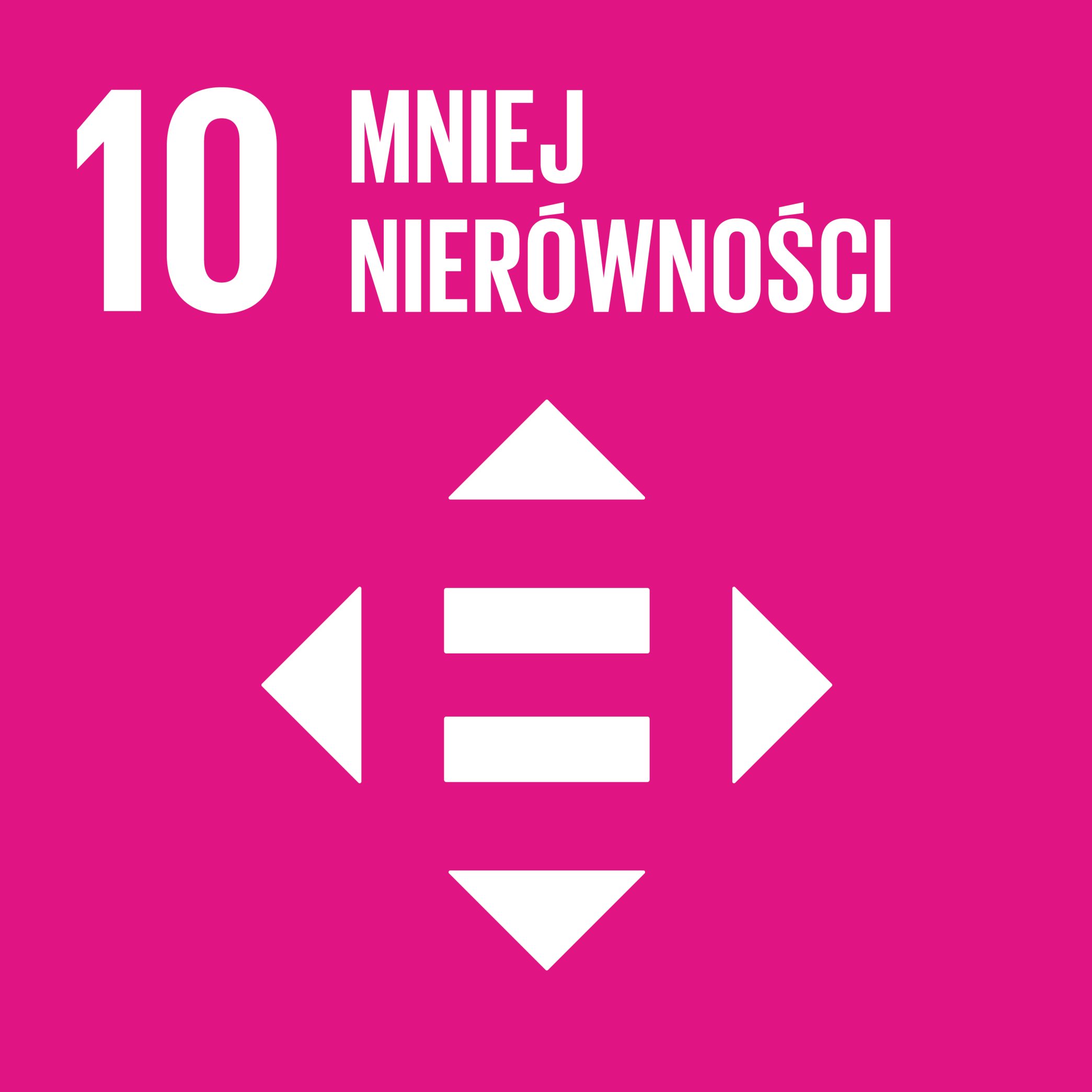We present to you the sustainability experts at the University of Gdansk. The list is in alphabetical order and will be updated on an ongoing basis.
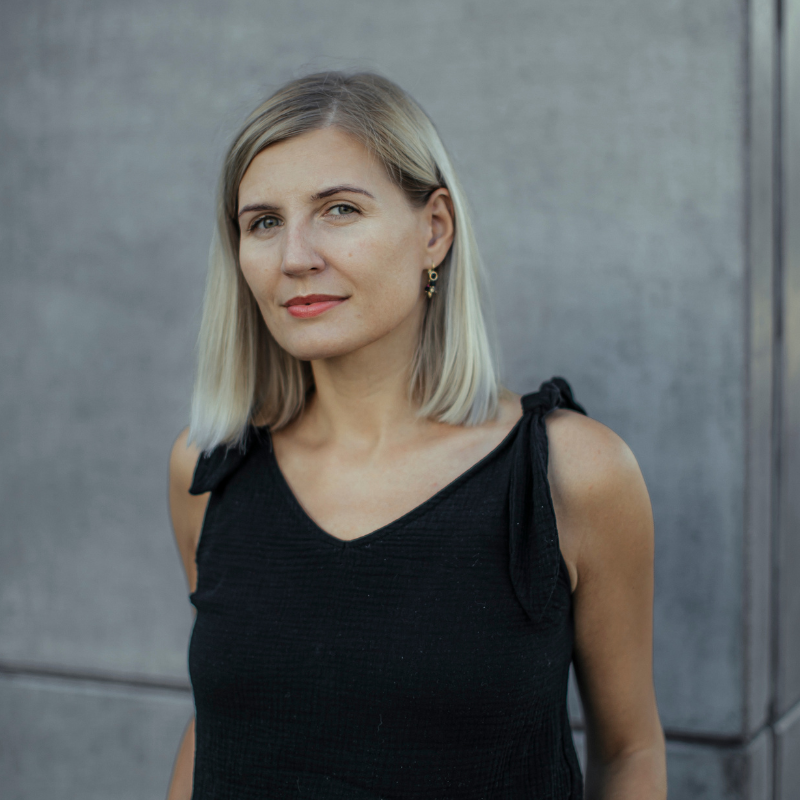
dr Irena Chawrilska
Faculty of Languages
Centre for Sustainable Development of University of Gdańsk
Academic Centre of Polish Language and Culture
Coordinator of the Culture for Sustainable Development Programme, the Centre for Sustainable Development, UG.
Voices of Culture Structured Dialogue between the European Commission and the cultural sector on “Youth, Mental Health and Culture”, selected representative of the University of Gdańsk and co-author of the report (2022).
Projects:
- Narratives about sustainable development, the National Agency for Academic Exchange Programme: Promotion of the Polish language 2021(BJP/PJP/2021/1/00006/DEC/1), Polish National Agency for Academic Exchange (coordinator)
- Sustainable development literature in the era of hypermodernism. Questions – directions – challenges, the UGrants–first Programme 2021, University of Gdansk (coordinator)
- Communication barriers of migrants in the Polish-speaking environment. The situation of Slavic and non-Slavic-speaking people living in the Pomeranian region, Gdańsk Humanities Support Programme 2021 (group grant)
Coordinator of Polish language and culture courses for refugees from Ukraine at University of Gdansk.
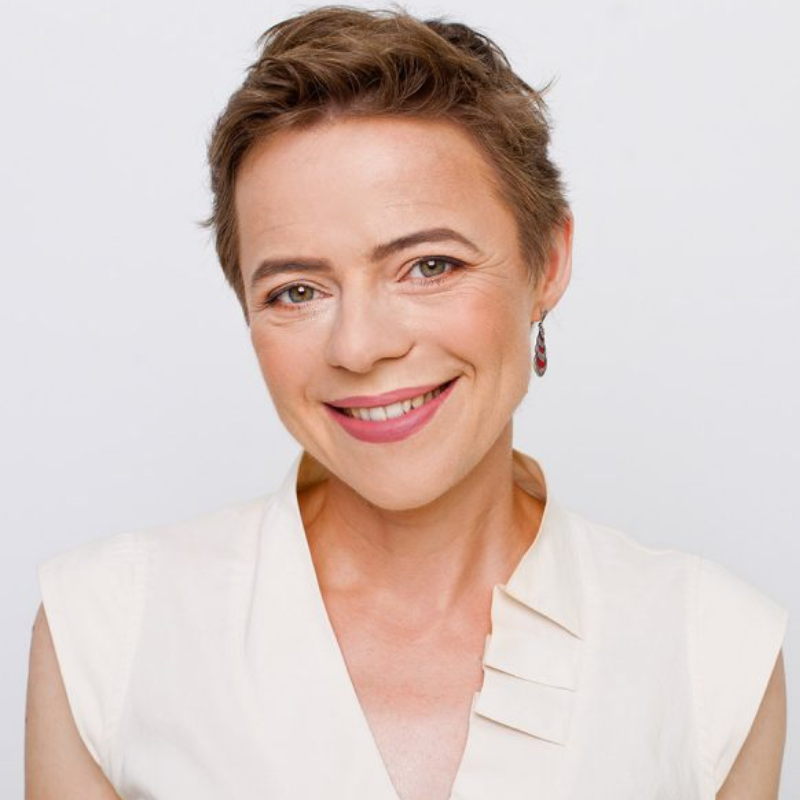
dr Elżbieta Czapka
Faculty of Social Sciences, Institute of Sociology
Center for Sustainable Development UG
International Border Studies Center
I have been working in the field of migration and health since 2007.
I develop a research programme on migration, health and sustainable development at CZRUG. In my research I explore various dimensions of migrants’ integration into the health care systems in immigration countries (i.e. access to healthcare services, communication between migrant patients and health personnel in healthcare settings, transnational caregiving).
I am the Chair of the European Network on Intercultural Elderly Care, a non-profit European network of professionals whose work is related to the elderly people with different ethnic background in Europe. ENIEC constitutes a platform to exchange ideas, experiences and practices. Its main aim is to secure that elderly migrant across Europe can live in an environment of tolerance, intercultural understanding and respect.
I am involved in the activities of the Lancet Migration European Regional Hub.
I am very active on the international arena by participating in scientific conferences, memberships in scientific associations and networks, and participation in international projects/consortia. From 2007 to 2011 I was a member of the Management Committee in COST Action ISO 603 “Home” (Health and Social Care of Migrants and Ethnic Minorities in Europe) and from 2011 to 2016 represented Poland in the Management Committee in COST Action IS1103 “ADAPT” (Adapting European Health Systems to Diversity). This year I became a member of the Management Committee in COST Action TraFaDy (Transnational Family Dynamics in Europe).
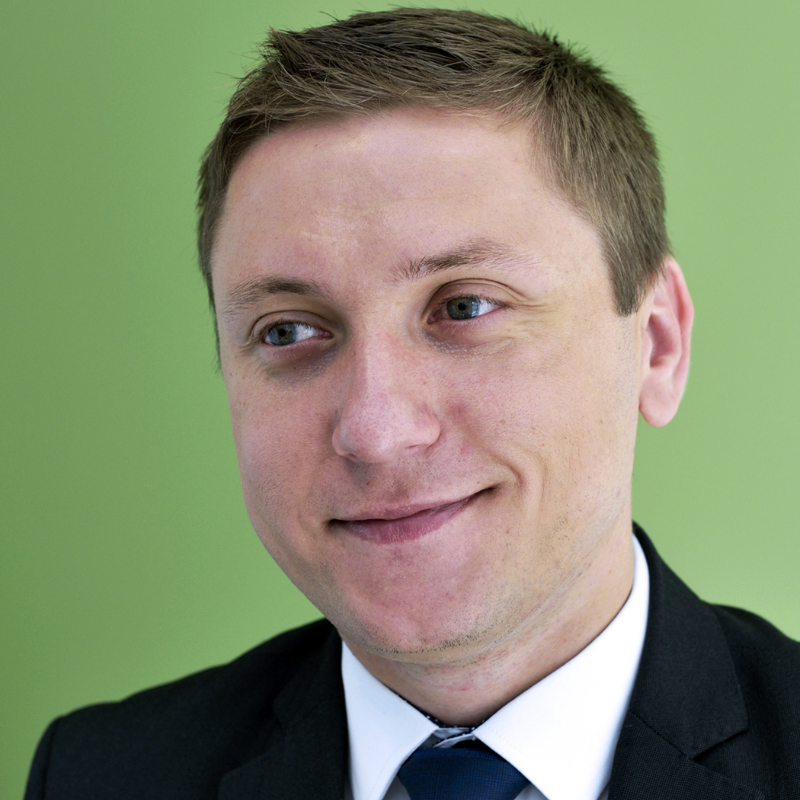
dr Łukasz Dopierała
Faculty of Economics
Committee for Social Responsibility, University of Gdańsk
- Conducting research in the field of socially responsible investment, in particular, the use of financial instruments in the energy transition
- Participation in the MINDtheGEPs project of Horizon 2020, focusing on the introduction and monitoring of gender equality policies at the University of Gdansk.
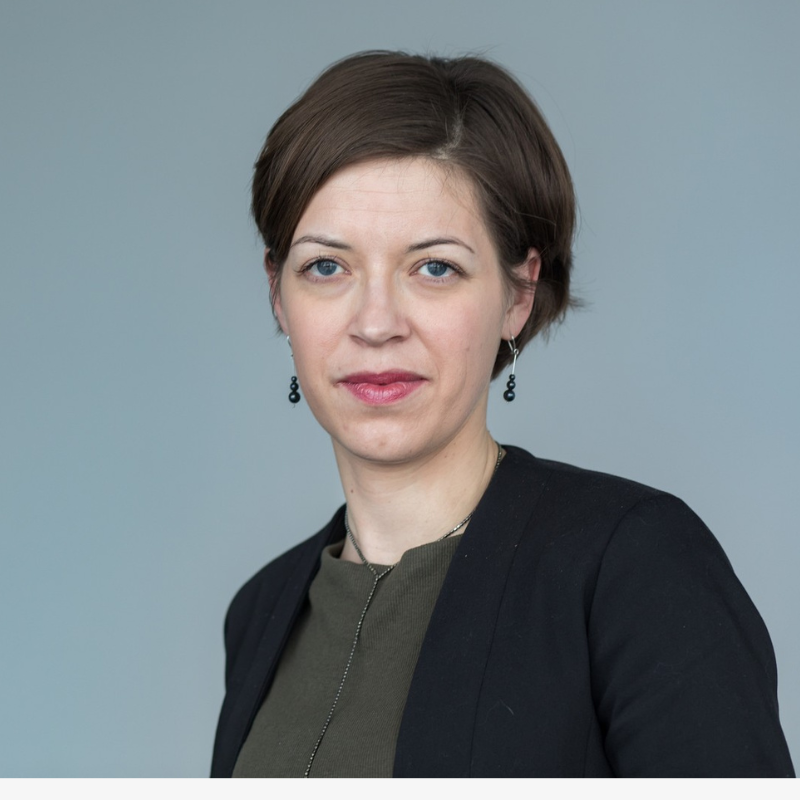
mgr Marta Dziedzic
Office of the Dean of the Intercollegiate Faculty of Biotechnology of the University of Gdańsk and the Medical University of Gdańsk
Committee for Social Responsibility of the University of Gdańsk
Project implementation specialist at the Inter-University Faculty of Biotechnology of the University of Gdańsk and the Medical University of Gdańsk; member of teams implementing projects in the areas of responsible research and innovation (RRI): STARBIOS2 (2016-2020), RESBIOS (2020-2022), MINDtheGEPs (2021-2025) from the EU Horizon 2020 programme at the University of Gdansk; involved in numerous initiatives of the University of Gdansk related to the social responsibility of science, member of the Commission for Social Responsibility of the University of Gdansk, co-created Gender Equality Policy Implementation Plan for the University of Gdansk for 2022-23 (2022) and the report Women in Science – Diversity Management and Gender Equality in Social Responsibility of the University of Gdansk (2021).
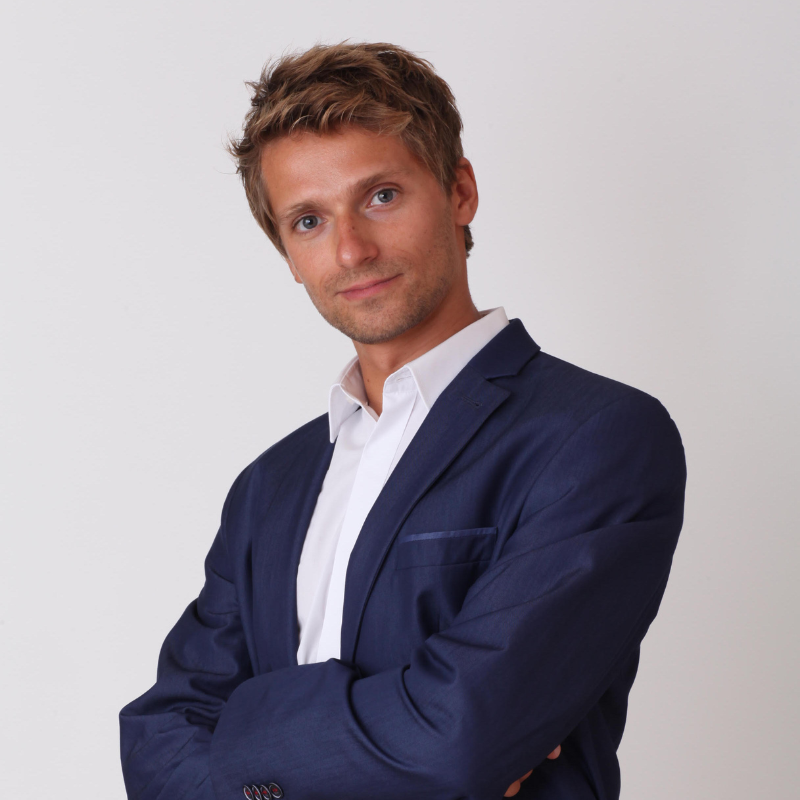
dr Szymon Gredżuk
Faculty of Languages
UG Committee for Social Responsibility
Department of East Asian Culture and Languages
- As a member of the UG Social Responsibility Committee, I support the implementation of the gender equality policy at the UG Faculty of Philology.
- In addition, I mainly research the culture of sea people in Japan and the Riukiu Islands and their perspectives on underwater ecology. As part of the UGrants-Start grant and with the support of the Between research group.
- In August and September 2022, together with Dr Sylwia Dobkowska, we conducted field research in Japan on Ama and Uminchu culture and underwater art as part of the UnderWaterArt project.
- I am interested in the impact of the underwater environment on culture and the new possibilities for creating art under the water’s surface, intending to highlight the problematic nature of life in this environment, which fits in with the 14th Sustainable Development Goal.
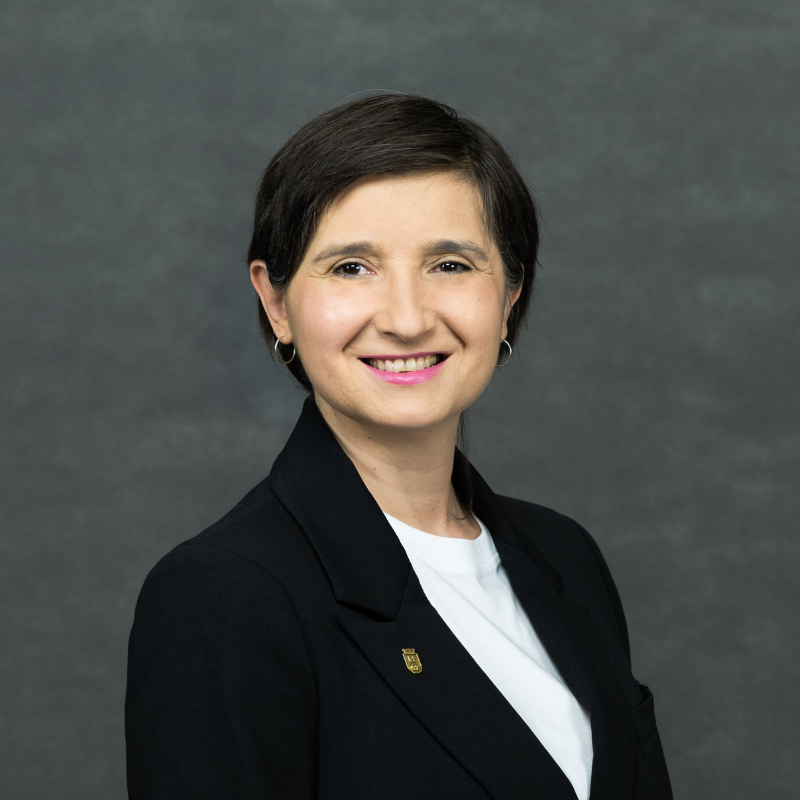
dr Barbara Kijewska
Faculty of Social Sciences
Gdansk Equal Treatment Council
Centre for Sustainable Development of University of Gdańsk
Expert support of the Gdansk Council for Equal Treatment (GRRT) on initiatives aimed at realizing the principle of equal treatment, especially in the implementation of the Model for Equal Treatment.
Supporting initiatives and cooperation of local government, businesses and NGOs in the field of dissemination of the principle of equal treatment.
Giving an opinion on draft resolutions, ordinances and programs in terms of their effects on people belonging to groups exposed to discrimination in Gdansk,
Monitoring and analyzing the phenomena of discrimination and formulating recommendations, statements and positions.
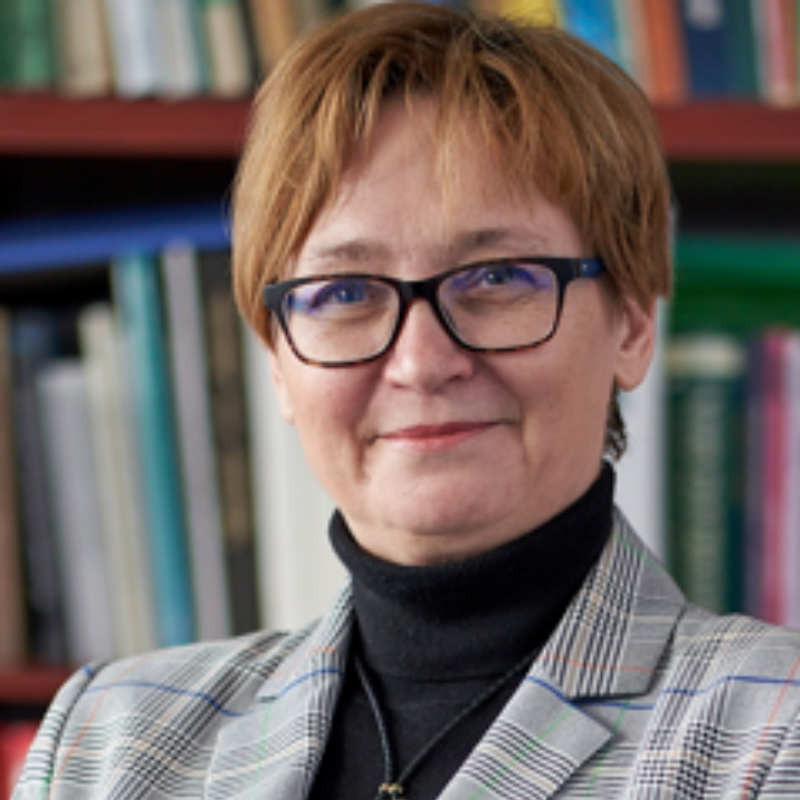
Dr hab. Joanna Kruczalak-Jankowska, prof. UG
Chair of Commercial Law
Equal Treatment and Anti-Bullying Ombudsman
Openness, social responsibility and commitment of the university
3.4 Develop and implement a model for inclusion, anti-discrimination and social inequality and other elements of a sustainable development policy
3.4.1 Implement and monitor the implementation of the anti-discrimination policy.
The anti-discrimination policy at UG is currently implemented on the basis of the UG Statute (§4) as of February 2021 and three specific documents adopted by orders of the Rector. These are:
“Policy on Counteracting Discrimination and Bullying at the University of Gdansk” introduced by the Rector’s Order No. 16/R/21
“Plan for the Implementation of the Gender Equality Policy at the University of Gdańsk. Equality measures for 2021-2023”, introduced by the Rector’s Order No. 182/R/21
“Policy on Counteracting Discrimination against Students and Doctoral Students at the University of Gdańsk” introduced by the Rector’s Order No. 189/R/21
On the basis of (§37 c of the Statutes), the Rector appointed an Equal Treatment and Anti-Harassment Officer in February 2021. This function was previously performed by the Rector’s Plenipotentiary for Equal Treatment and Anti-Harassment.
According to the Statute, the ombudsman’s tasks include in particular:
- initiating, implementing, coordinating or monitoring activities aimed at ensuring equal treatment, in particular protection against discrimination and counteracting mobbing;
- taking action to eliminate or reduce the effects of a breach of the principle of equal treatment or a justified suspicion of mobbing;
- Promoting, disseminating and advocating the principles of equal treatment;
- To develop and implement a system for monitoring gender equality of opportunity;
- taking action to investigate the legitimacy of complaints in cases of violation of the principles of equal treatment or mobbing.
The Ombudsman and his deputies form the Ombudsman’s Office. There are currently two deputies in the Ombudsman’s Office: the Deputy for Conflict Prevention – Psychologist and the Deputy for Anti-Discrimination and Anti-Harassment for students and doctoral students.
On the basis of §69a. UG Organisational Regulations introduced by the Rector’s Order No. 148/R/20 as amended, the tasks of the Office include:
- performance of all tasks related to the implementation of the policy of equal carrying out all tasks related to the implementation of the equal treatment policy at UG, in particular the policy of counteracting mobbing and discrimination;
- initiating, implementing, coordinating or monitoring activities aimed at ensuring equal treatment, in particular protection against discrimination and counteracting mobbing;
- taking action to eliminate or reduce the effects arising as a result of a breach of the principle of equal treatment or a substantiated suspicion of mobbing by formulating recommendations, recommendations and good practices;
- promoting, disseminating and advocating the principles of equal treatment. To this end, the Office organises and conducts training.
- taking action to investigate the legitimacy of complaints in cases of violation of the principles of equal treatment or mobbing;
- as necessary, the Office supports the activities of other ombudsmen appointed by the Rector.
As part of the implementation of educational activities aimed at counteracting discrimination and promoting, disseminating and advocating the principles of equal treatment, the Office organised a series of training sessions with specialists. The training took place online and is now available on the Employee Portal and the Ombudsman’s Office website https://ug.edu.pl/o-uczelni/uniwersytet-odpowiedzialny-spolecznie/biuro-rzecznika-ds-rownego-traktowania-i-przeciwdzialania-mobbingowi/cele-i-dzialania. Training tailored to the current needs of employees also takes place.
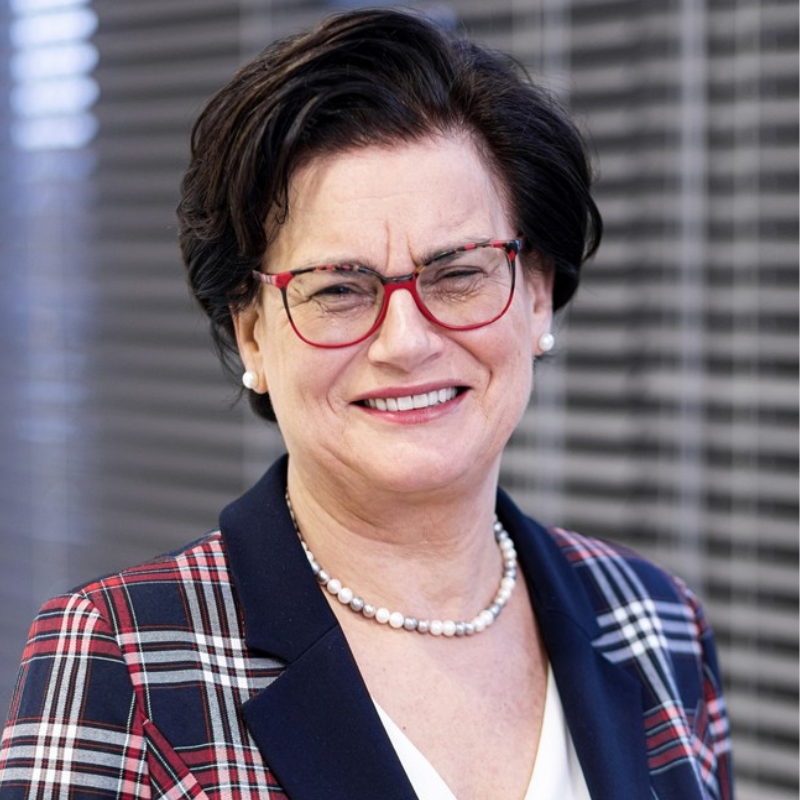
prof. dr hab. Ewa Łojkowska
Intercollegiate Faculty of Biotechnology of UG & MUG
Chairwoman of the Committee on Social Responsibility of the University of Gdańsk
Activities focused on organising and running the University of Gdansk’s Social Responsibility Committee. In 2021 and 2022, activities focused on Sustainable Development Goal 5: Gender Equality.
As part of these activities, I coordinated:
- the creation of the report “Women in science – diversity management and gender equality in the social responsibility of the University of Gdansk” (2021)
- creation of the gender equality plan for UG “Plan for the implementation of gender equality policy at the University of Gdansk – equality measures for 2022-2023“
- creation of the website “Women in Science. Elisabeth Koopman-Heweliusz page” (2022)
- introduction of approximately 30 entries in the Gedanopedia on female researchers and organisers of science in Gdańsk (2021-2022),
- creation of a list of indicators/indicators to assess the implementation of gender equality policy at UG (June 2022).
I participated:
- in the realisation of the project leading to the creation of the first ‘Family Room’ at the University of Gdansk – at the International Centre for Vaccine Research (ICCVS), Kładki 24 (September 2022)
- in the realisation by the Museum of the University of Gdansk and the Gdansk Science Museum of the exhibition “Pioneering Women, Researchers, Leaders. Women of Gdansk science” (August 2022)
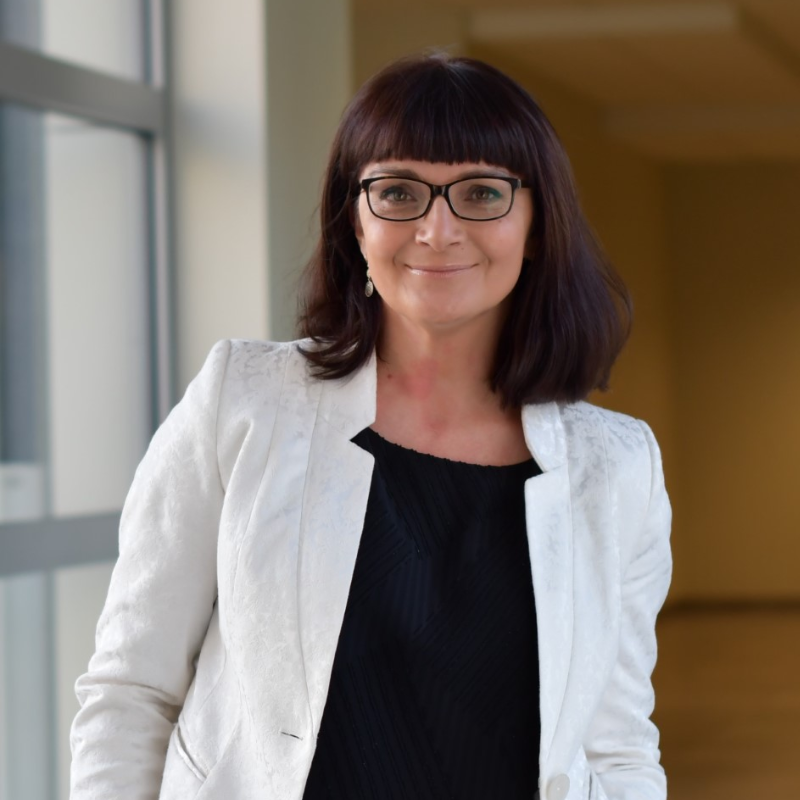
dr Magdalena Markiewicz
Faculty of Economics
Magdalena Markiewicz is an assistant professor at the Department of International Business at the Faculty of Economics of the University of Gdańsk. She holds a PhD in economics. Her research interests focus on: international finance and banking, mergers and acquisitions, international currencies and global financial centers, ESG issues. The Vice-dean for development and cooperation with business (2016-2020), and for development and cooperation with the socio-economic environment (since 2020). A member of the Polish Economic Society. Involved in many projects on economic education using innovative teaching methods (as certified design thinking moderator and tutor).
Awarded with the Medal of the National Education Commission, distinction in the “Teacher of the Year” competition named after Celestyn Mrongowiusz.
She conducted or participated in the projects co-financed by National Center for Research and Development, the Regional Chamber of Commerce of Pomerania and the Voivodship Labor Office in Gdańsk, the National Bank of Poland, Erasmus+, the Ministry of Science and Higher Education and the Ministry of Science and Education. The project member of “Science Clubs at the University of Gdańsk – known and unknown faces of science” co-financed by the Ministry of Science and Education, the program Social Responsibility of Science / Excellent Science. Faculty coordinator of the project “PROGRAM for the Development of the University of Gdańsk (ProUG)” (2018-2022), including visiting professors programs, or the launch of an innovative study program “Telemedicine and projects in health care”. She created the first tournament of Oxford debates on sustainable development, covering issues of economics and environmental protection and the lecture series “Open Economic Lectures”. As part of her scientific, didactic and organizational activities, she uses experience gained at the international programs (Leaders in University Management, Finnish Higher Education program, University of Helsinki, 2019; Masters of Didactics, University College London, 2021; Advanced Teaching and Tutoring Qualification, University of Groningen, 2022) and during study and teaching visits to many foreign universities.
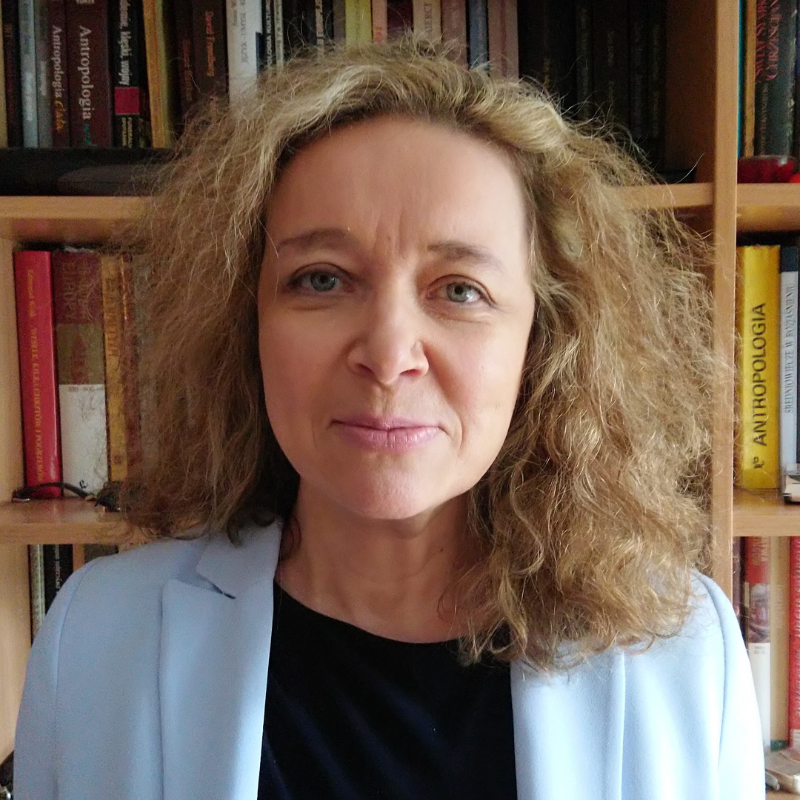
prof. dr hab. Beata Możejko
Faculty of History UG
Member of the Committee for Social Responsibility UG
member of the Knowledge Committee of the Gdańsk Encyclopaedia
President of the Uphagen House Society
As part of the Commission’s activities, I collaborated on
- the production of the report “Women in science – managing diversity and gender equality in the social responsibility of the University of Gdańsk” (2021)
- creation of the gender equality plan for UG “Plan for the implementation of gender equality policy at the University of Gdansk – equality measures for 2022-2023“
- creation of the website “Women in Science. Elisabeth Koopman-Heweliusz page” (2022)
- the introduction of approximately 30 entries in the Gedanopedia on female researchers and organisers of science in Gdańsk (2021-2022),
- realisation by the Museum of the University of Gdansk and the Gdansk Science Museum of the exhibition “Pioneering Women, Researchers, Leaders. Women of Gdańsk Science” (August 2022)
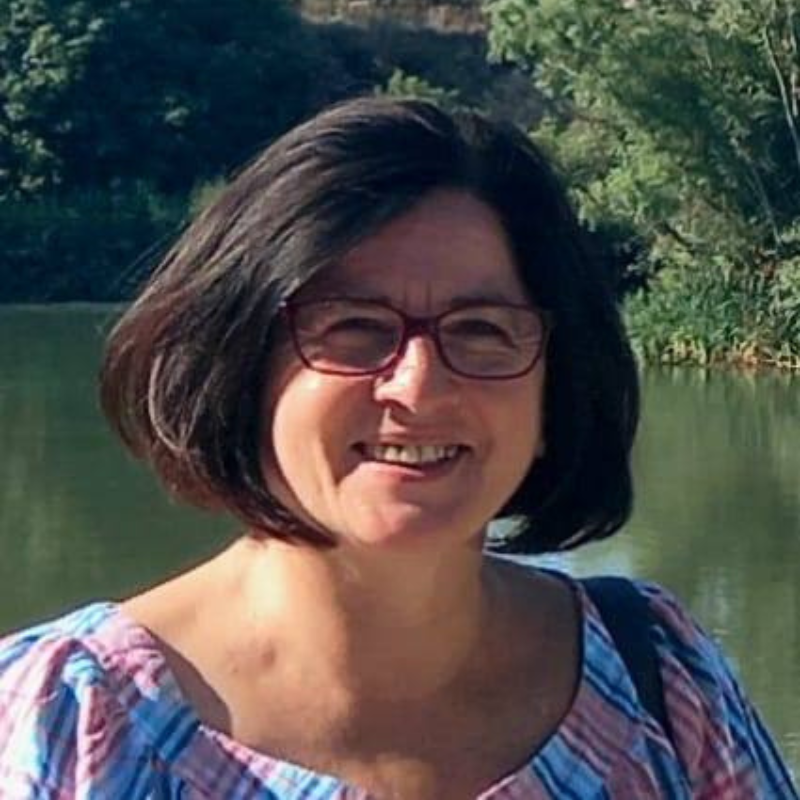
mgr inż. Jolanta Mrozek – Kwiatkowska
Centre for Sustainable Development of University of Gdańsk
- Managing projects that support the achievement of the sustainable development goals.
- Striving to incorporate sustainable development principles into project management.
- Activities specifically related to raising public awareness in the face of climate change and current socio-economic challenges, green and blue energy issues and the circular economy.
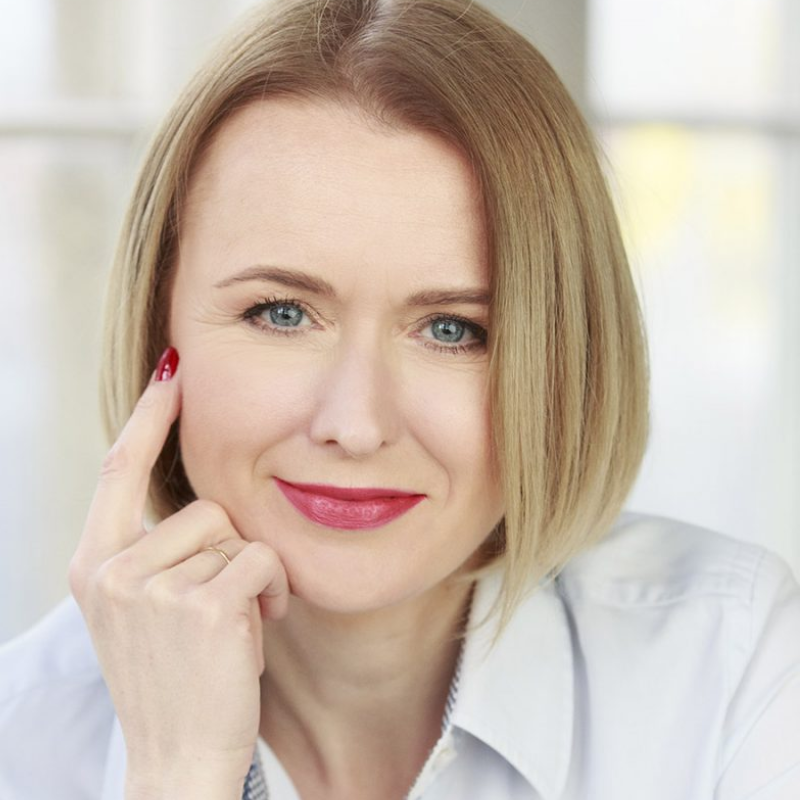
dr hab. Sylwia Mrozowska, prof. UG
Vice-Rector for Cooperation and Development, University of Gdańsk
Faculty of Social Sciences
Centre for Sustainable Development of the University of Gdansk
- manager, coordinator and co-organizer of scientific projects in the field of sustainable development, e.g. MNiSW, NCBiR, H2020, Interreg South Baltic, Jean Monnet Programme, ESF POKL, Europe for Citizens, Youth in Action, Development of Polish Universities, Scholarship and Training Fund, Visegrad grants;
- Expert evaluation projects in programmes: Horizon 2020, NAWA, Serbian Science Fund, RPO;
- expert of the Polish Ecological Club;
- member of Team Europe Poland, scholarship holder of the Konrad Adenauer Foundation, NAWA;
- Member of PLATENSO research network;
- Member of working groups social education, human resources development and education system in the Ministry of Climate and Environment.
- Lead coordinator of working group 5 Social education established to implement the Sectoral Agreement for Offshore Wind Energy Development in Poland at the Ministry of Climate and Environment
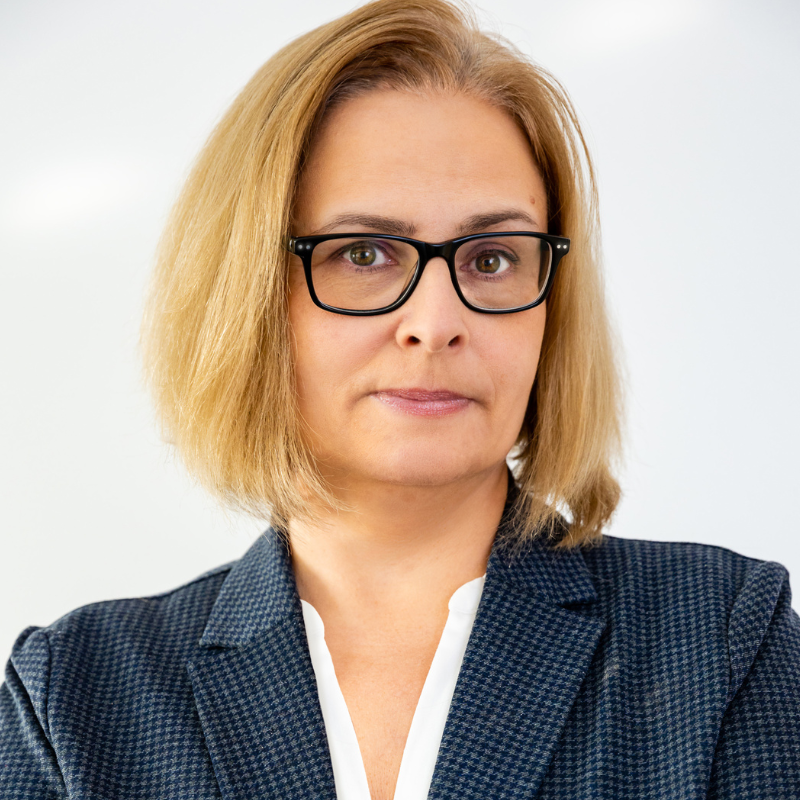
mgr Magdalena Nieczuja – Goniszewska
Communication and Promotion Centre/Press Team/Press Officer
Media support (including through contacts with journalists) and promotion in the media as well as on the University of Gdansk’s website and social media pages of any action, conference, etc. related to Sustainable Development activities.
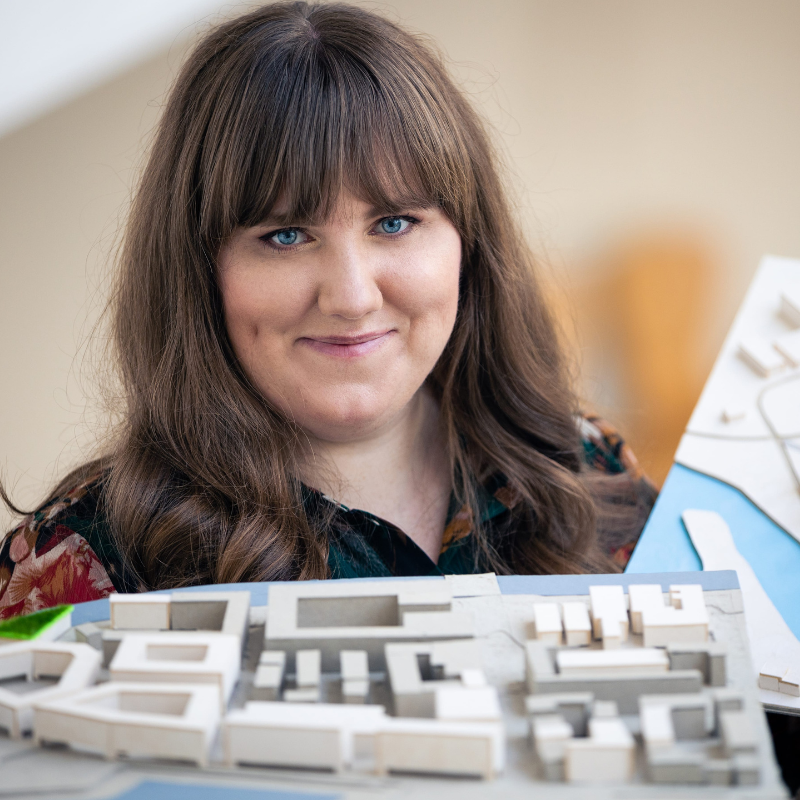
dr inż. arch. Hanna Obracht-Prondzyńska
Institute of Socio-Economic Geography and Spatial Management of University of Gdańsk
Department of Spatial Management
Hanna is an architect and urban planner focusing on data driven city planning and design.
Her work focuses on indirect methods of social participation including research on the potential of using social media data to measure urban perception. She develops tools allowing the engagement of urban dwellers in the process of climate change mitigation. She also develops assessment data driven methods to analyse the quality of life in built environment and to study urban vulnerabilities and resilience towards climate changes.
In 2020 she defended with distinction her PhD in engineering and technical sciences, in the discipline of architecture and urban planning at the Faculty of Architecture of the Gdańsk University of Technology. In her thesis, she used the experience of regional, urban planning and data analysis, to develop a data-based model enhancing sustainable regions, which was to measure the impact of metropolitan growth on small towns development.
For her work, she received 5 awards, including two from the Ministries and the Polish Academy of Sciences. In 2022, she received a three-year scholarship from the Minister of Higher Education for an outstanding young scientists.
She also studied at the Warsaw University of Technology, receiving the title of GIS analyst, and at the University of Technology in Vienna. She completed a course at InfoShare Academy obtaining a data scientist certificate.
She has an international academic and design experience from China, South Africa, USA, Colombia, Romania and Germany. She worked in the Pomeranian Regional Planning Office, where she co-created, among others, a spatial development plan for the Pomeranian Voivodeship and the Gdańsk-Gdynia-Sopot metropolitan area.
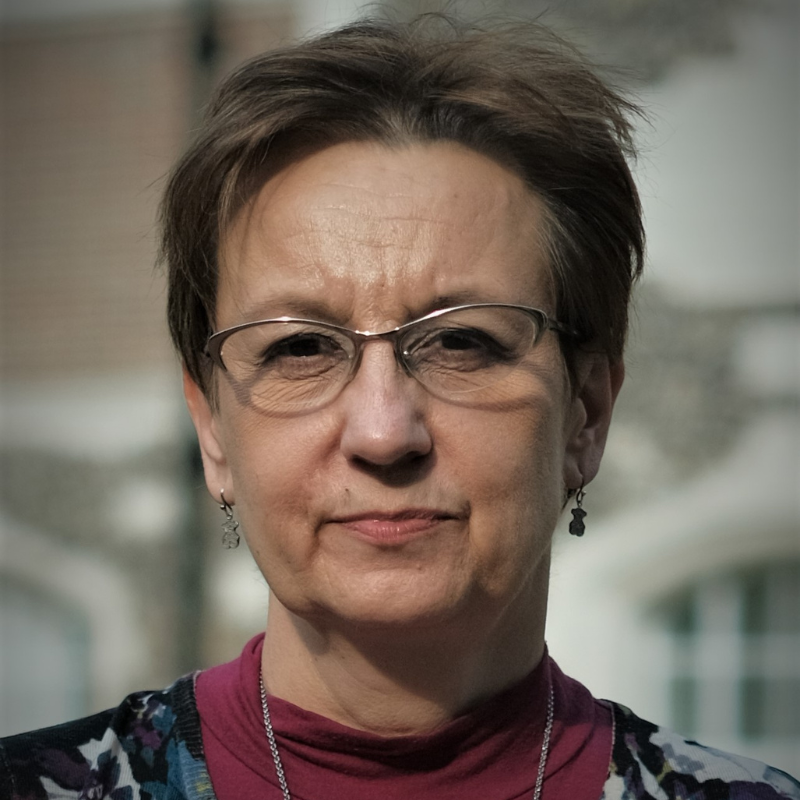
dr hab. Barbara Pawłowska prof. UG
Faculty of Economics, Department of Transport Economics
Committee on Social Responsibility of the University of Gdansk
- Author of numerous works on sustainable socio-economic development with a focus on transport and transport external costs, transport policy and strategies, energy sector development, especially in the context of alternative fuels and urban development directions. Since the early 1990s, she has been conducting scientific research on externalities, methods of their valuation and internalisation of external costs of transport, with a particular focus on transport policy instruments and the study of their effectiveness and efficiency in implementing the idea of sustainable development.
- He teaches SDGs (Economy and the Environment, Economics in Environmental Protection for students of the Faculty of Economics and the Faculty of Chemistry).
- Since 2017, she has been organising a Sustainability Day at the University of Gdansk as part of the European Sustainability Week, involving students, PhD students, research and teaching staff from various UG faculties and partners from the business and local government environment. In 2022, the event was organised for the 4th time and gathered more than 300 participants;
- In 2017, she initiated the signing of the University of Gdansk’s Declaration of Social Responsibility of the University.
- She is a member of the Commission for the implementation and monitoring of the HR Excellence in Research strategy at UG (since 2018), the Commission for Social Responsibility of UG (since 2020) and the Implementation Council of the Gender Equality Plan at UG (since 2021).
- She is a member of the University Social Responsibility Working Group within the Sustainability and Corporate Social Responsibility Team at the Ministry of Funds and Regional Policy (since 2016). As part of the work of this group, she coordinated the development of a catalogue of good practices of social responsibility in universities.
- She is a member of the Steering Committee of The Polish Chapter of the PRME UN Global Compact Initiative (since 2021).
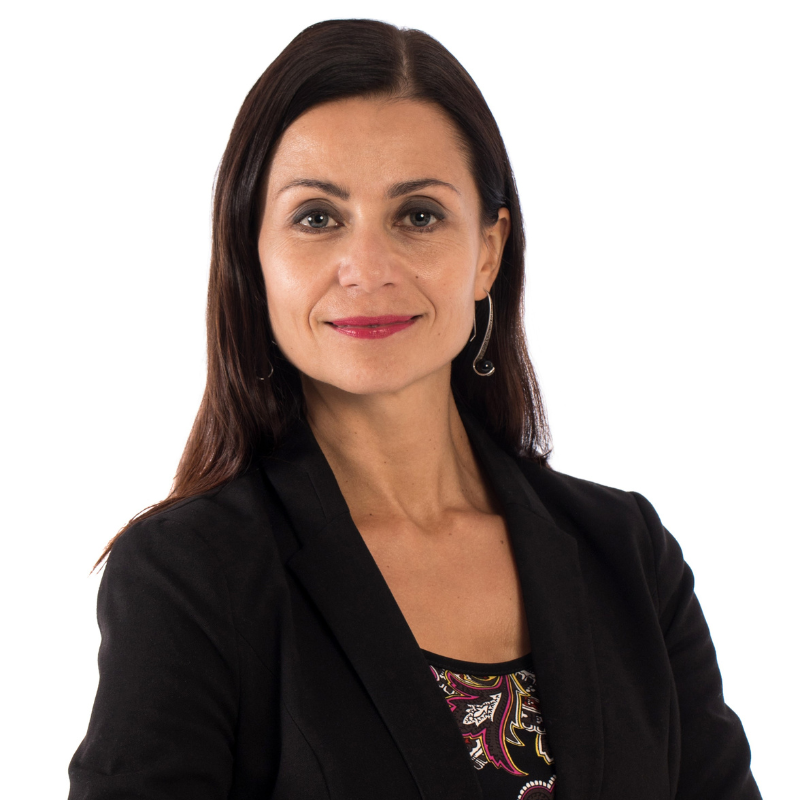
dr Katarzyna Świerk
Office of Science
Committee for Social Responsibility of the University of Gdańsk
UG Plenipotentiary for Open Access to Publications and Research Results
As recommended by UNESCO, the development of open science contributes to reducing the knowledge and technology gap worldwide. Open science and scientific excellence programmes are a kind of accelerator for achieving the Sustainable Development Goals. Through my activities in this broad area, I have the opportunity to carry out specific tasks in support of the SDGs.
I have been involved in science for many years – as a scientist, but also as a manager of administrative activities. This dual approach to problems allows me to better understand scientific processes. I have gained experience as a trainer and consultant in many higher education institutions, not only in my home institution. As an expert of the European Commission, I have assessed more than 30 proposals in the field of HR Excellence in Research (assessor and lead assessor), which allowed me to learn about the different approaches of European units to the problem of research development. I developed and implemented HRS4R at my university, where I continue to coordinate the process (https://en.ug.edu.pl/research/hrs4r)
I provide training and support other units in implementing C&C principles in Poland (e.g. University of Wrocław, Silesian University of Technology ZUT in Szczecin).
At my alma mater, I manage the Office of Science and I am a plenipotentiary for Open Access. I am also a member of the Research Subcommittee of the European University Grant – SEA – EU – where I am responsible for collaborative research, sharing of research infrastructure, open science and ethical principles. I am involved in the process of implementing the Gender Equality Plan – I was the author of the first report on women in science, which was a milestone in building the Gender Equality Plan
My recent interests relate to the social impact of science and the dissemination of research results – recent article ‘Methods of disseminating research and its popularisation in the media – the impact of universities on society (https://www.ceeol.com/search/article-detail?id=999647)
I think there are still many challenges for science. To implement new solutions or modern approaches – you need people who have different experiences. In my professional journey, I have had the opportunity to combine many aspects, which gives me the opportunity for a broader and comprehensive assessment – necessary to make many forward-looking and developmental decisions.
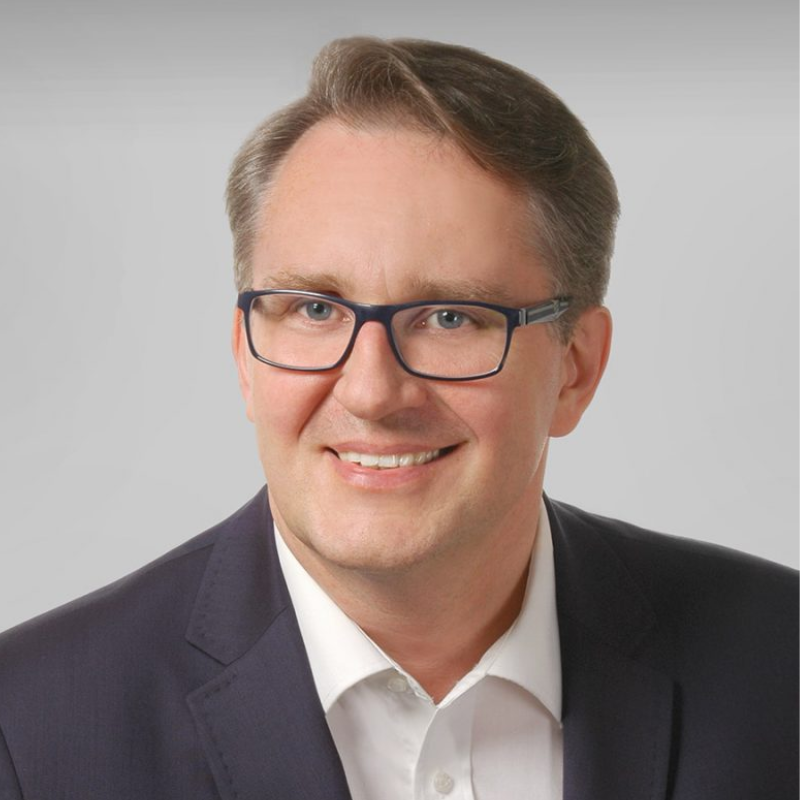
dr Krzysztof Szczepaniak
Director of the Centre for Sustainable Development, University of Gdańsk
Assistant Professor at the Department of Investment and Real Estate, Faculty of Management
- Manager, coordinator and co-organiser of scientific projects in the field of innovation management, commercialisation of research results, energy efficiency, sustainable development, which received funding from the Ministry of Science and Higher Education, Horizon 2020, Interreg South Baltic, Erasmus and Erasmus+;
- Expert on the evaluation of projects funded by programmes: National Research Centre, Polish National Agency for Academic Exchange – NAWA, Operational Programme Inteligent Development, Regional Operational Programme of Pomorskie Region;
- European Commission expert for projects financed from Horizon Europe funds by the European Innovation Council and SMEs Executive
- Agency (EISMEA)
- Member of the Expert Group: Council of the Climate Change Forum of the City of Gdansk

dr Magdalena Żadkowska
Faculty of Social Sciences
Committee for Social Responsibility of the University of Gdańsk
Institute of Sociology
Dr. Magdalena Żadkowska, sociologist, researcher, academic lecturer, trainer Graduated in sociology atthe University of Gdańsk and in cultural studies from the Jagiellonian University. She holds a PhD in sociology from the Nicolaus Copernicus University in Toruń. She works as an Assistant Professor at the University of Gdańsk.
She is involved in the implementation of equality solutions in academic institutions (Horizon Europe and Horizon 2020 projects: STARBIOS2, RESBIOS, ActOnGender, MindTheGEP, REWIRING), in the local environment (Gdańsk Migrant Integration Model, Gdańsk Equal Treatment Model), in the business environment (GFKM, Intel, l’Oreal et al. ) and research and academia (Trust across borders: State institutions, families and child welfare services in Poland and Norway, funded by EEA; OPUS 21 NCN MASCULINITY NAVIGATOR – unpacking the relationship between masculine roles, well-being, and gender equality (EQUAMAN) (2021/41/B/HS6/00617), Sonata Bis 8 NCN (Principle Investigator) Till death do us part…. Everyday life practices of 50-64 years old couples with at least 20 years’ of common life experience, UMO-2018/30/E/HS6/00159, HARMONY 6 NCN Toward Gender Harmony – Understanding the Relationship between Masculinity Threat and Gender Equality Across Cultures. Contract no UMO-2017/26/M/HS6/00360. Expert in gender relations and status quo for:
(1) Community of Practice (On the Way to Gender Equality – Community of Practice for Gender Equality in Central and Eastern Europe) of ActProject under grant agreement No 788 204 (introducing Mamorandumof Understanding for establishing Communities of PrACTice for advancing gender equality in RPOs and RFOs across Europefor at UG),
(2) Gender Academy European Union’s Horizon 2020 research and innovation programme under grant agreement No 824585,
(3) National Researcher for European Comissin: Gender-Sensitive Parliaments – EU 28 assessment,
(4) National Researcher for European Comissin: COVID & Domestic Violence – EU 28 assessment,
(5) National Researcher for European Comissin: Gender Equality and Work-Life Balance Policies during and following the COVID-19 crisis.
Co-author of publications related to SDG: – Kosakowska, N., Żadkowska, M., Pawlicka P., (2020) Gender Equality = Common Cause. Gender equality activities as an element of effective diversity management and a source of positive structural changes in higher education institutions on the example of the University of Gdańsk, Miscellanea Anthropologica et Sociologica, 2020: 3 (21) – Women in science: diversity management and gender equality in the social responsibility of the University of Gdańsk: report 2020 Co-author of the Gender Equality Policy Implementation Plan at the University of Gdańsk. Equality actions for 2022-2023 https://ug.edu.pl/strona/120333/plan-wdrazania-polityki-rownosci-plci-w-uniwersytecie-gdanskim
Author of the report:
– Żadkowska, M. (2018), report Ukraińcy i Ukrainki na Pomorskim Rynku Pracy. Dropped anchors? Models of Ukrainian migration to Pomerania for the Voivodeship Labour Office.
Co-author of the report: – Korzeniewska, M., Bivand-Erdal, M., Kosakowska-Berezecka, N. Żadkowska, M. (2019), report ZAUFANIE PONAD GRANICAMI. A review of the research literature on social trust issues, migration and social welfare and child protection institutions.
Media Expert: Gazeta Wyborcza, Radio Gdańsk, Newsweek, TVN, WP.
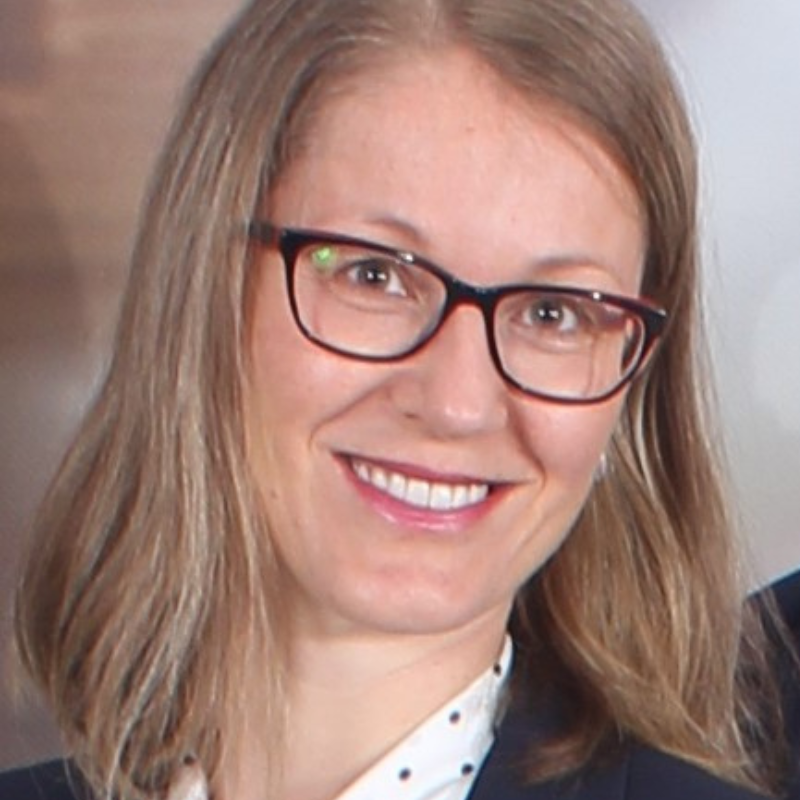
dr hab. Anna Magdalena Wojewnik-Filipkowska, prof. UG
Faculty of Management
Ph.D. hab. in social sciences in the discipline of management and quality sciences. She specializes in the issues of investment management from the perspective of economic and social conditions and the assessment of efficiency in microeconomic and macroeconomic terms. Macroeconomic efficiency is manifested in sustainable and stable growth, which is the subject of her activity in the scientific field and teaching and is directly in line with SDGs 8, 9, and 11. She is the author of the concept of the fundamental power of the city, indicating the need for integrated sustainable development, but also taking into account the concept of a smart and resilient city. She combines teaching and research activities with expert activities, in which she also promotes the principles of partnership indicated as SDG 17, and responsible consumption and production – which is the essence of SDG 12.











